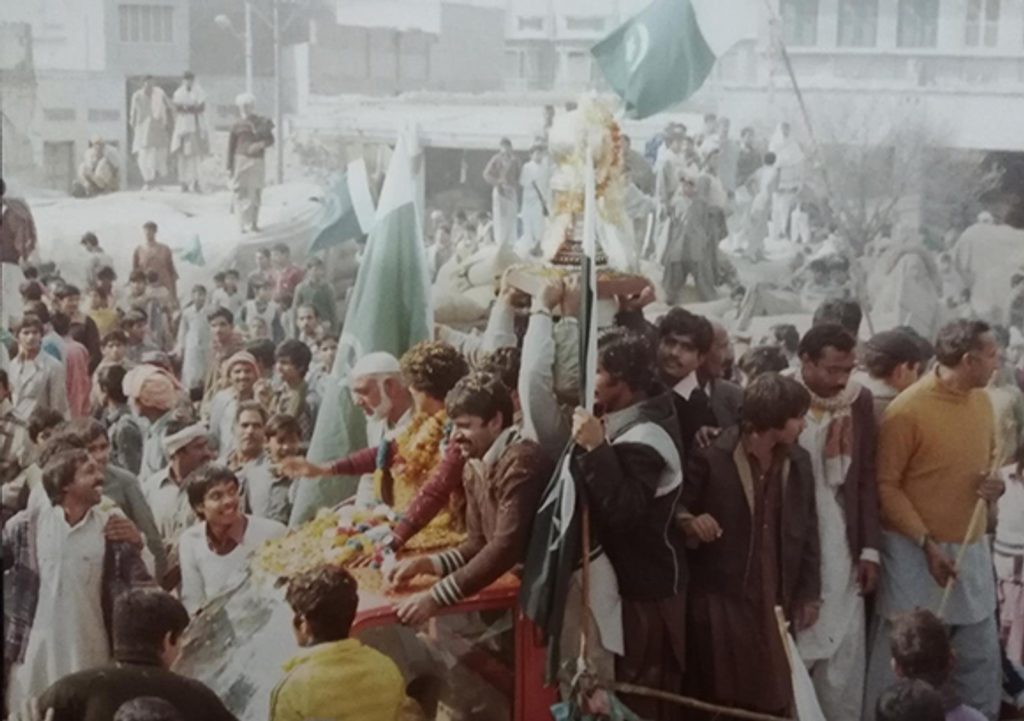
Pakistan’s association with hockey has been one of the highlights for the growth of the sport across the world. Apart from being the most successful nation in the men’s World Cup, Pakistan also has a deep-rooted culture for hockey. A town in the Punjab Province, Gojra, has contributed immensely to the success of the sport.
The story of Gojra’s love for hockey dates to the early 1950s when a physical training instructor at Government M.C. High school, the Late M Yaqoob, laid the foundation of what has been a long-lasting legacy.
Despite never having played hockey, he single-handedly raised the school team and created an atmosphere for many hockey clubs to start in the late 1950s. However, the level of their hockey was still no-match for the established sides of their neighbours.
One of the hockey clubs was patronised by Chaudhury Bashir, who established the Gojra Hockey club in 1964 and started arranging hockey tournaments, which saw participation of all the major teams of the country. Bashir also financed tours of Gojra Hockey club team to participate in the tournaments held in different parts of the country.
A seed sown in the early 1950s was now reaping fruits and Gojra started to leave an impression on Pakistan’s national side by the late 1960s.
Aslam Roda, became the pioneer by making Gojra the great nursery of hockey that it is today. Roda devoted himself to training youngsters at the Gojra Hockey Club.
Roda was joined by Iqbal Bali, another wonderful coach at the club, who played for Pakistan as a full-back in the early 1970s, and notably in the 1973 Hockey World Cup. Bali later became an international umpire. His contribution comes second only to that of Roda’s.
Gojra Welcomes the 1982 World Cup winners. Trophy held by local brothers Manzoor Ul Hassan & Rasheedul Hassan Photo: Ijaz Chaudhry & Affan Manzoor
With time, more and more Gojra boys wore the Pakistan uniform in hockey. Goalkeeper Mohammad Aslam was the first Gojra boy to win a major title in the 1970 Asian Games in Thailand, followed by the 1971 World Cup in Barcelona, Spain.
In 1975, Roda and Bali parted ways due to certain differences. Now Bali ran the Gojra Hockey Club while Roda began coaching a new club named Gojra Sports. In the hindsight, it helped Gojra hockey by developing a healthy rivalry.
Soon, Gojra had its first mega-star, full-back Manzoorul Hassan. He remained an important part of the Pakistan defence in 1970s and scored more than 100 goals. Manzoor also has the honour to be first player from Gojra to wear the captain’s armband for the national team.
The next star was none other than Manzoor’s younger brother, Rasheedul Hassan. The world class right-half has every gold medal in his cabinet: Olympic, World Cup, Asian Games, Asia Cup, Champions Trophy and Junior World Cup. He too captained Pakistan.
From the early 1980s onwards, no Pakistan team has left the country’s shores without having representation from Gojra.
The Pakistan team which won the Hockey World Cup in 1994 featured five Gojra players within the 16-member squad.
Incidentally, it was in 1994 when Pakistan had those two glorious successes, the Hockey World Cup preceded by the Champions Trophy, which made the Pakistan government sanction a synthetic turf for the Gojra city. For this, a proper stadium was required. Construction work was completed in the year 2000 and the turf was laid.
Various academies launched in 2009, invite PHF certified coaches to train players in different age groups. The idea is to develop a pool of players – from among trainees at the regional academies – for training at the national academy in Lahore. The national academy, in turn, is tasked with building players for the national squad.
Ironically, the clubs/academies of Gojra get almost no support from the government and are being run on a self-help basis. They meet their expenses through donations by former students.
At present, no town in Pakistan, big or small, is recognised for a single sport as much as Gojra is for hockey. It is its identity and pride.
Such has been the impact, that Gojra had no representation in the national team until late 1960s but in the last five decades Gojra now holds the distinction of contributing with the largest number of hockey players to Pakistan’s national teams.
Such development programmes are great examples of organisations engaging with the International Hockey Federation's Hockey Revolution strategy. With an aim of making hockey a global game that inspires future generations, Gojra's development of hockey is an example of positive progress being made in Pakistan.
For more information about hockey in Pakistan, visit the Pakistan Hockey Federation website here.























